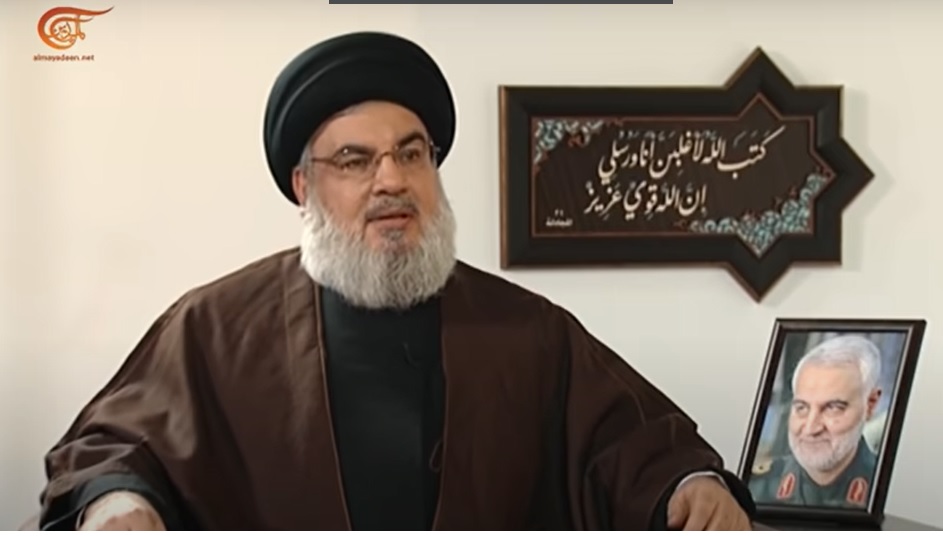Hezbollah has taken note of Defense Minister Galant’s recent remarks, made after a situation assessment at the Northern Command, about the growing tensions with Hezbollah. Galant emphasized, “Our center of gravity is moving from south to north, and we are undergoing a gradual shift.”
Hezbollah interprets this as Israel preparing its public for the possibility of an expanded conflict on the northern border, potentially leading to a full-scale military confrontation.
This comes in the wake of Israeli airstrikes on Hezbollah targets, including weapon warehouses in Baalbek, deep within Lebanese territory.
The Lebanese newspaper Al-Akhbar, which is aligned with Hezbollah, commented that the escalation is driven by Israeli pessimism about reaching a deal to release hostages and implement a ceasefire in the Gaza Strip.
It also suggested that Hezbollah and Iran are likely to respond militarily to Israeli assassinations in Beirut and Tehran, signaling that the conflict is likely to expand, especially on the northern front.
Hezbollah officials told the newspaper that the organization, with decades of experience in conflict with Israel, anticipated the risks when it entered into hostilities after October 7.
They claim to fully understand the changes within Israel.
Hezbollah’s leader, Hassan Nasrallah, had previously declared that his organization would open a front against Israel to support Hamas in Gaza.
However, following the assassination of Hezbollah Chief of Staff Fuad Shuker, Nasrallah announced that the organization had entered a new phase of open war against Israel.
Despite this escalation, he has attempted to maintain the rules of engagement set at the beginning of the conflict, although it is increasingly clear that further escalation is likely.
Nasrallah is mindful of the damage that an all-out confrontation with Israel could cause to Lebanon, but he remains cautious, estimating that he can deter Israel from expanding its campaign against Hezbollah.
Currently, Hezbollah’s strategy is to increase military pressure on Israel, aiming to ease the strain on Hamas in Gaza and complicate Israel’s military plans.
Nasrallah appears willing to sustain this military pressure on Israel indefinitely, despite the IDF’s gradual erosion of Hezbollah’s military infrastructure in southern Lebanon and the loss of hundreds of its fighters.
Hezbollah has so far avoided targeting Israeli civilians, choosing to focus its responses on military objectives.
If Israel unintentionally harms Lebanese civilians, Hezbollah retaliates with heavy rocket and drone fire.
Nasrallah is particularly concerned about avoiding damage to Lebanon’s strategic civilian infrastructure, which is already struggling with electricity shortages and economic hardship.
Consequently, Hezbollah has refrained from targeting Israel’s strategic facilities.
The evacuation of tens of thousands of Israelis from the northern border—perceived by some as a mistake by Israel’s political leadership—has been leveraged by Hezbollah.
Nasrallah uses this as a bargaining chip, and Israel must alter the rules of engagement to safely return its citizens to their homes.
The return of these evacuees cannot occur without deterring Hezbollah more effectively, a reality that Israel’s political leadership appears to be increasingly recognizing, as evidenced by Defense Minister Galant’s recent statement.
Hezbollah is also aware of the international coalition forces in the Mediterranean, coordinated by the United States to protect Israeli airspace.
It understands that Israel is not alone in this conflict, raising the question of how long these forces will remain in the region.
The presence of the international coalition serves as another pressure point for Israel, as Hezbollah is likely reluctant to enter an all-out war under these circumstances.
This presents Israel with a unique opportunity to exploit any misstep by Hezbollah and launch a preemptive counterstrike while the coalition forces remain in place.
Such an opportunity is rare and could be pivotal in shaping the future of the conflict.




